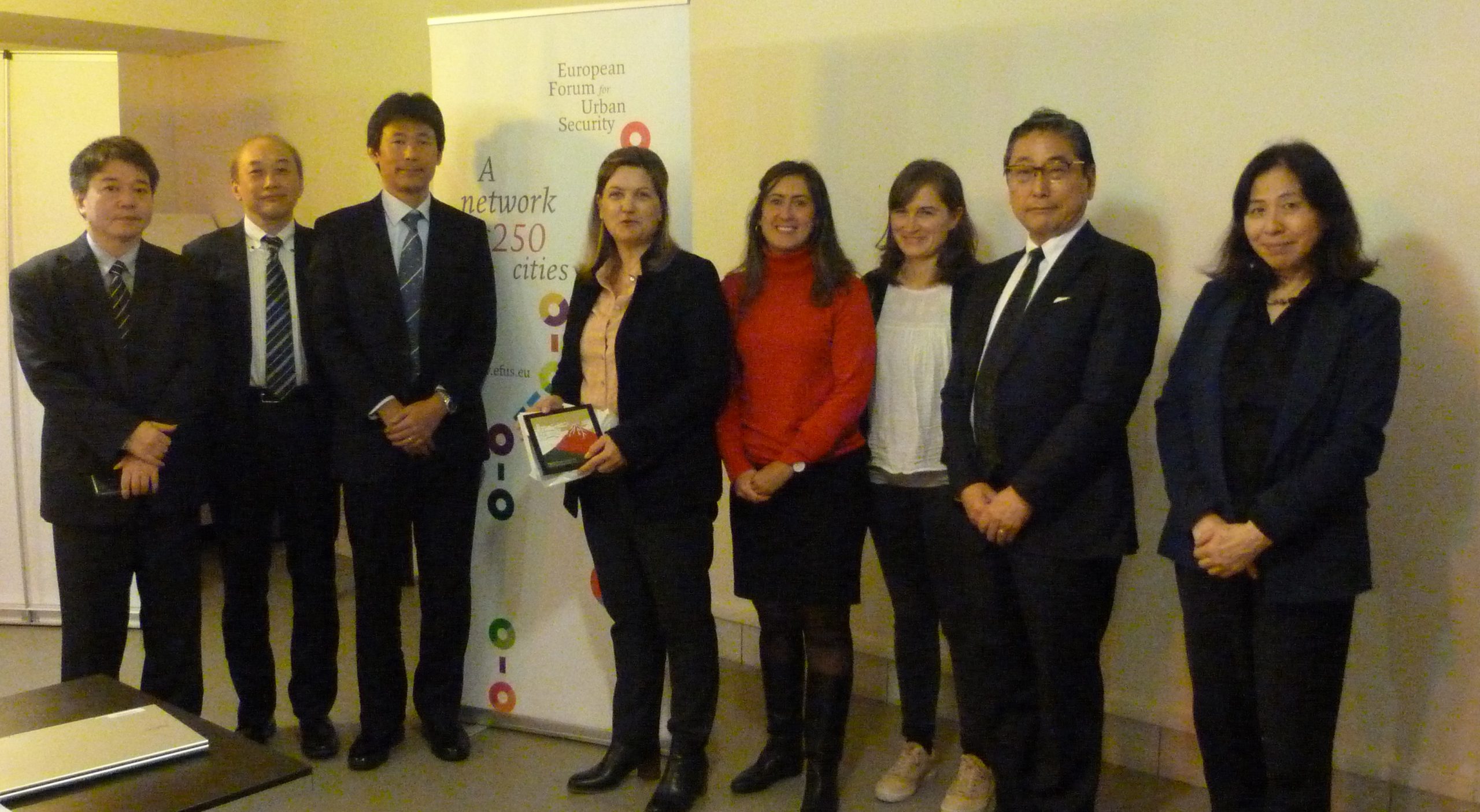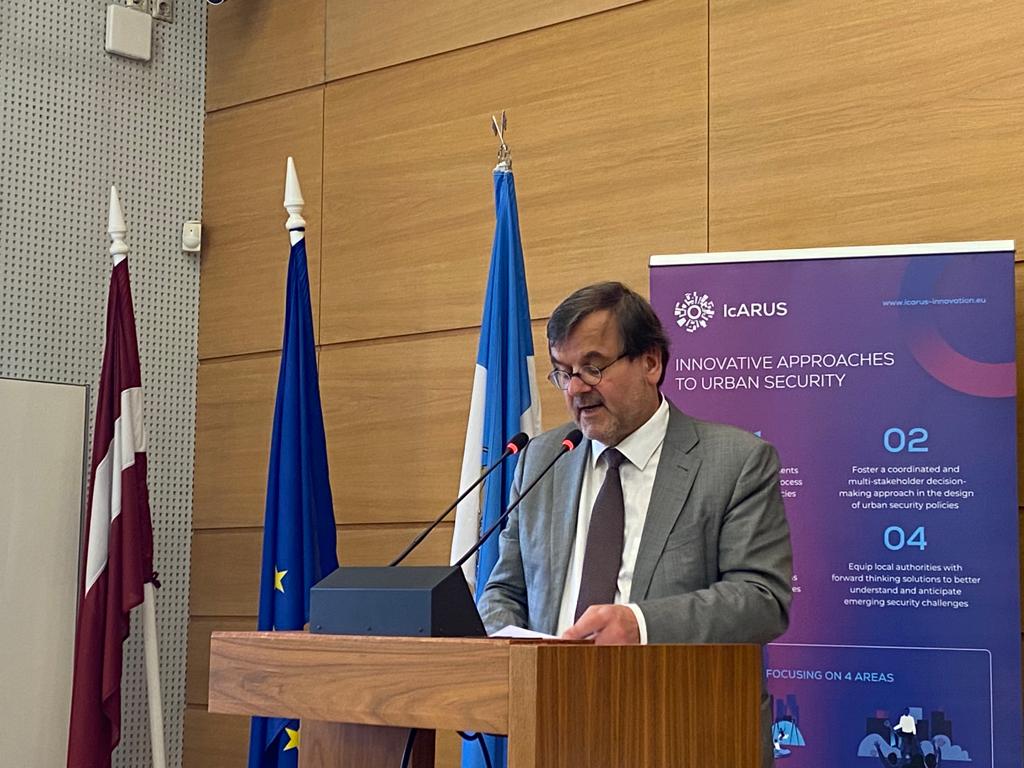 Paris, France, November 2019 – What ethical and legal challenges do new technologies such as artificial intelligence pose in terms of security? Do they efficiently protect people against threats such as terrorism? Are new laws necessary to regulate the use of these technologies, in particular facial recognition? These were the main issues Efus discussed with a delegation of Japanese researchers and industrialists during a meeting organised by Efus in Paris, on 18 November.
Paris, France, November 2019 – What ethical and legal challenges do new technologies such as artificial intelligence pose in terms of security? Do they efficiently protect people against threats such as terrorism? Are new laws necessary to regulate the use of these technologies, in particular facial recognition? These were the main issues Efus discussed with a delegation of Japanese researchers and industrialists during a meeting organised by Efus in Paris, on 18 November.
The Japanese delegation gathered representatives of the Institute for International Socio-Economic Studies, the Japan Electronics and Information Technology Industries Association (EITA), and the Personal Information Protection Commission (PPC). Efus was represented by Elizabeth Johnston, Executive Director, and Pilar De La Torre, Programme Manager, and had invited Camille Gosselin, an urban planner at the department of crime prevention and security of the Paris Region Institute (Institut Paris Région).
> A topic on which Efus has been working for a decade
Efus presented the work it has been conducting for a decade on this topic, in particular through the Citizens, Cities and Video-Surveillance project (2009-2010), which produced the Charter for a democratic use of video-surveillance, the Medi@4Sec project (2016-2018) on the use of social media for security, and the PRoTECT project on the use of new technologies in counter-terrorism (November 2018 – October 2020).
Efus also presented its political stance on these matters, as expressed in its Security, Democracy and Cities – Co-producing Urban Security Policies manifesto (2018), which advocates a “sensible, weighted and justified” use of new technologies for urban security, urges local authorities to increase their knowledge in this area, and calls for adapted legislation at the European level.
> Respecting privacy: a common challenge in Japan and in Europe
Social acceptance of new technologies and the need to protect individual freedoms are important issues both in Japan and in Europe, not only in the political debate but also in civil society. Although the legislative frameworks are different, Japanese industries are interested in exchanging views and experiences with Europe, as was the case for the Japanese delegation, who had initiated the meeting.
The challenges are all the more pressing that technologies are changing rapidly: artificial intelligence, smart cameras, facial recognition, predictive policing, management of big data… Besides the protection of privacy, another issue is the biases that are included in the design of some technologies.
However, if there are risks (mass surveillance, infringement on private life, unauthorised use of personal data…), new technologies also present new opportunities to strengthen security and are already widely used by law enforcement agencies and local and national governments in France and other European countries. Furthermore, they enable citizens to be more directly involved in their own safety, in particular through social media.





